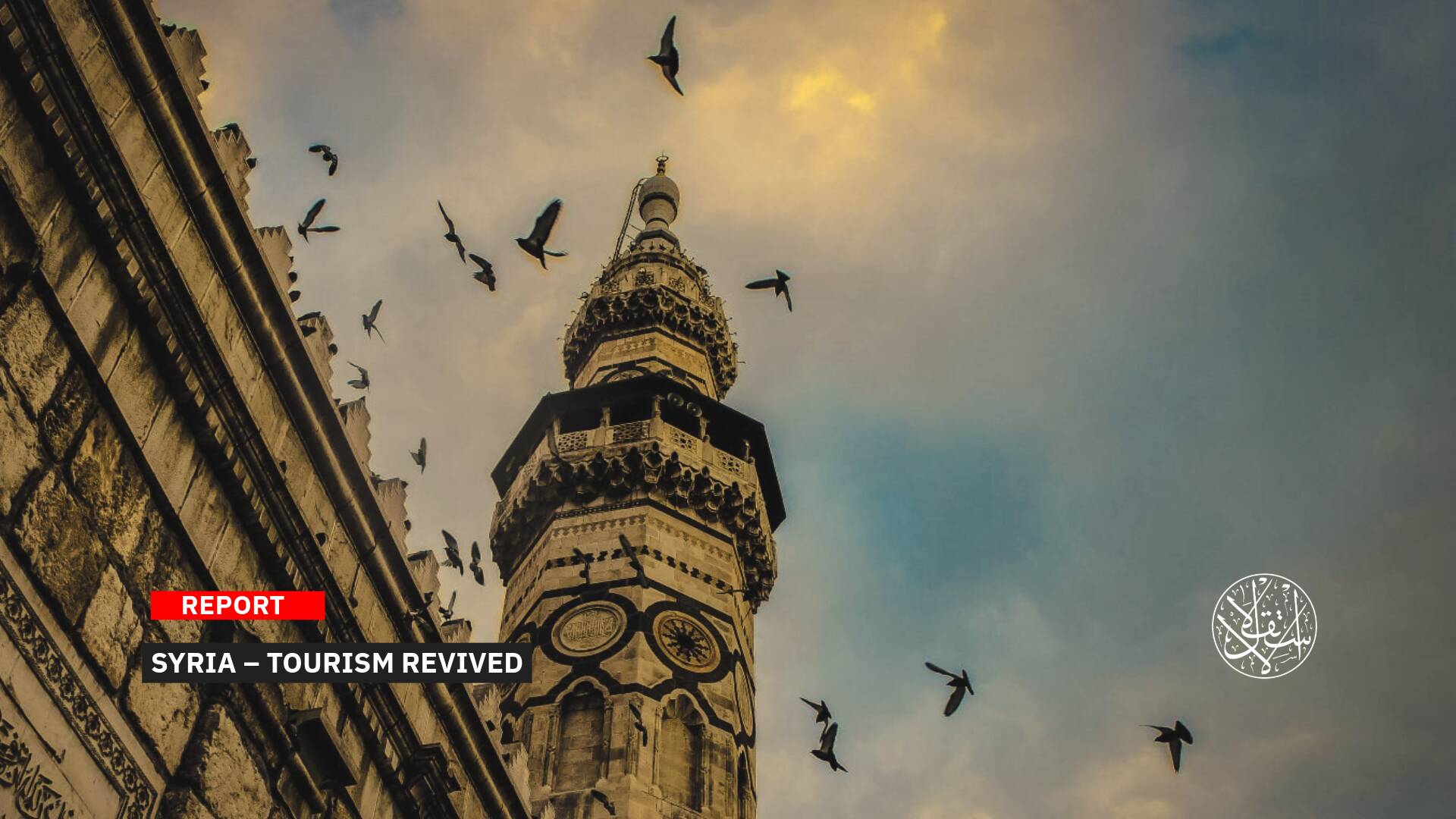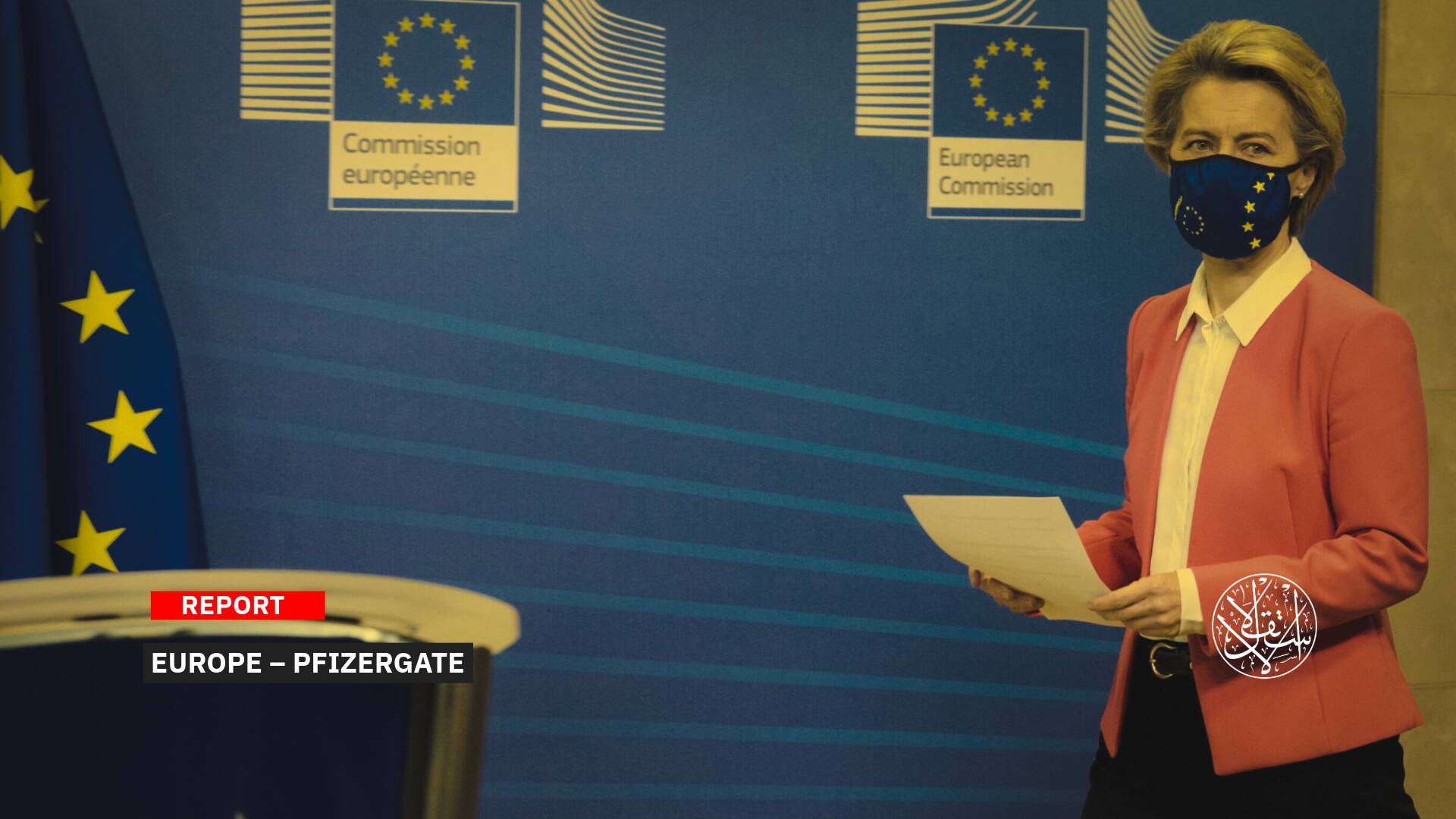Vatican Invites World Churches to Pray for Lebanon; Is It for Saving the Country or Saving Christians?

Financial and administrative corruption, political partisanship and the bias of each team to its community and regional and international ambitions, crisis hit Lebanon, the Arab tourist country that was associated in the minds of its lovers with beauty and civilization, but by its crises the "Land of Cedar" is on the verge of collapse.
In early July 2021, Pope Francis raised the prayer "For Peace and Stability in Lebanon," mired in an economic crisis designated by the World Bank as one of the three most severe in the world since 1850.
The Pope invited all Christians around the world to participate in the prayer so that "Lebanon will rise from the serious crisis and reappear its face, the face of peace and hope."
Representatives of the nine Christian churches in Lebanon participated in the prayer, five representing Catholic churches, three orthodox, and one representing evangelicalism (Protestants).
The Day of Prayer for Lebanon included three closed sessions at the Vatican Apostolic Palace and concluded with an ecumenical prayer "for peace" in the Basilica of St. Peter, with texts read out in Arabic, Syriac, Armenian and Chaldean.
We're Not Leaving it
The Great Pontiff sent a message to the Lebanese and their leaders, and to the “international family”, saying: "We have come together to pray and think together, driven by great concern for Lebanon, as we see this country, which I hold in my heart and want to visit, in a serious crisis.”
"Lebanon cannot be left hostage to fate or those who seek without conscience after their own interests."
He also appealed to Lebanese politicians to "find urgent and stable solutions to the current political, financial and social crisis," reminding them: "There is no peace without justice.”
He directly criticized the people in power in Beirut and called on them to put themselves "once and for all in the service of peace, not in the service of their own interests.”
"Enough using Lebanon and the Middle East for political interests and gains," he said, calling on the international community to "provide the right conditions for Lebanon so that it does not sink."
Historical Relations
The Pope's speech prompted some to ask: Does the pontiff's words signal the Vatican's move to lead the initiative to save Lebanon?
The official relationship between Lebanon and the Vatican dates back to 1584, according to University Professor and Holy See expert Naji al-Qazali.
Pope Gregorius XIII established the Maronite School, following the unification of the Maronite faith with the Catholic faith, as a institute for the study of Catholic theology, from which the most prominent flags of the Maronite community graduated.
The Vatican supported the Maronite Church's demand for the creation of a greater State of Lebanon.
This is evidenced by pope Benedict XVI's plan ahead of the declaration of the Great State of Lebanon on the map of Lebanon, which is still in the archives of the Maronite Patriarchate in Bakri, which carried the sentence: "The aspirations of the Lebanese have been fulfilled by their homeland, and we bless them."

During Lebanon’s civil war (1975-1990), the then Pontiff Pope John Peter II made intensive efforts to stop Lebanese bloodshed.
According to Al-Qazali, the pope devoted 340 speeches to Lebanon, and chanted "I am more Lebanese than you.”
Former President Amin Gemayel said in his memoirs that the Vatican was at the heart of the countries that contributed to the Taif Agreement of September 30, 1989, which ended Lebanon’s civil war.
The agreement in Saudi Arabia deals with discussions in the Vatican corridors with Lebanese Christian authorities, which stressed standing against the division of Lebanon under any form or name.
The Vatican also refused to turn Christians into a state confined to Christian villages and cities only, stressing the importance of a participatory system between Christians and Muslims.
The Dean of Eastern Churches, Cardinal Leonardo Sandri, addressed a press conference held at the Vatican Press House to announce "The Day of Prayer and Reflection for Lebanon.”
At the outset, he mentioned the Apostolic Exhortation "A New Hope for Lebanon", in which the late Pope John Paul II spoke in 1991 about his call for a "synod" for the cedar country, when the situation was tragic.
The word "synod" of Greek origin means meeting, a church event, where Catholic bishops meet with the Holy Father (pope) and seek solutions to pastoral issues globally.
The Synod for Lebanon was completed in 1995, before Pope John Paul II paid a historic visit to Lebanon in 1997 and signed the Apostolic Exhortation.
His successor, Pope Benedict XVI, chose Cedar Country to sign the Post-Synodal Apostolic Exhortation of the Middle East in 2012.
Prayer Deliberations
The Patriarch of Antioch and the rest of the Orient of Maronite, Cardinal St. Bishara Boutros-Ra'i, revealed that the titles discussed in the meetings included "Lebanon's neutrality from the conflicts in the region, the international conference, and the subject of Hezbollah and its weapons."
"The meeting at the Vatican came to the Pope's listening to the details, he did not intervene during the deliberations of the three meetings, but sat listening to the audience," he told MTV.
In contrast, the central news agency published a report on the events of the long Lebanese-Vatican day, describing the atmosphere as "very good.”
The whole of the ideas contained in the working papers carried with them by the heads of Lebanese churches were put forward and discussed with them to the Vatican, and the differences between officials from the same community reflected negatively on the general situation.
It was also discussed that the meeting should be followed up through a committee or any other means of not leaving him an orphan.

Intensive talks between the Pope and spiritual leaders included a detailed presentation of the details of the collapsed Lebanese reality and the causes of this collapse, while presenting what can be done to save the country and its people.
The agency's report stressed that the debate did not take place from a narrow Christian angle, as there was a consensus that saving the country and the establishment of the state in them was the salvation of the Lebanese, Muslims and Christians alike.
He concluded by talking about a plan drawn up by the Vatican state, to alleviate the impact of the collapse on the Lebanese, and to have the world on their side in their suffering, waiting to get out of the economic and living crisis without going into details.
Ironically, cardinal Leonardo Sandri, dean of eastern churches, said ahead of one of the three meetings that "only God can help Lebanon get out of the serious crisis it is in."
Al-Estiklal, from follow-up church sources, learned that the deliberations also included research on how to promote social service and the need to preserve active sectors, particularly those with a Christian presence and a balanced presence such as health and education.
It was also discussed how Lebanese expatriates were urged to help residents and to seek with Western circles to spare Lebanon the great fall.
In addition, focus on increasingly involving protest and revolution forces in the internal political process, as an alternative to the ruling power.
According to Al-Estiklal’s information, a quasi-road map had been developed to achieve these objectives, but the final mechanism and translation tools had been absent on the ground.
Rescue Initiative
Lebanese analysts have not seen a "feasible rescue initiative" at the Vatican prayers, for a variety of reasons, including what is linked to the current pope from a background that has not been in constant contact with the problems of the Middle East.
Journalist Daoud Ramal tells "al-Estiklal" that "a large number of cases are filed in the Vatican capital by Christian clerics against church officials (lawsuits of financial, real estate and moral corruption. Etc.", he said.
When Pope Francis sent Secretary of State Cardinal Pietro Barolin, the Vatican’s second-in-command, in August 2020, the papal delegate was surprised that the Church in Lebanon was "away from the pain and suffering of Lebanese Christians and Muslims."
Only “Caritas” Foundation was found to be trying as much as possible and overstretched to make relief efforts and help those affected by the Beirut port explosion, while most church institutions appeared to be "in a coma.”
At the same time, Ramal adds: "he noted that there is no political view of the future Christian presence in Lebanon among most Christian leaders in Lebanon, and that the Lebanese people are "left to their fate and no one pays attention to them."

This is why some believe that he is the reason why the Pope postponed his visit to Lebanon after he visited Iraq, because of the blame for the Maronite Church and the coldness with the Lebanese Patriarch Bishara al-Ra'i.
"The pope's prayer came the day after his meeting with U.S. Secretary of State Anthony Blinken," Ramal said.
It was remarkable that Matera of Italy then hosted a trilateral meeting of the United States, French and Saudi Arabia, the first of its kind, on the sidelines of the G-20 talks.
To date, however, it has not emerged whether the prayer resulted in a Vatican initiative or whether the Vatican would leave the bread of politics to other political bakers.

Meanwhile, according to columnist Munir al-Ruba'i, the Vatican's entry into the Lebanese crisis line has a moral character and political influence, as it is coordinated with Washington and France.
"The prayer is aimed at restoring international attention to the Lebanese file and focusing on the need to save Lebanon and all Lebanese, not just Christians," he told Al-Estiklal.
This applies to the rule of Christians indulging in their communities with members of other communities, not on the basis of divisive or federal solutions, but on the preservation of the national state and the central state.
In an indirect response to the nature of the relationship between the shepherd and the Vatican, Al-Rabie said: "The movement of patriarch Al-Ra'i was complementary and coordinated with the Vatican in all its details."
In his view, the Vatican's intervention brings us back to the pre-signing phase of the Taif Agreement, which ended the Lebanese war (at that time the Vatican movement was remarkable and active, when it meant putting Lebanon on the international agenda).
At the end of his speech, he points out that it takes time to get results from the meeting, as it will not have an immediate impact, but a long path.










